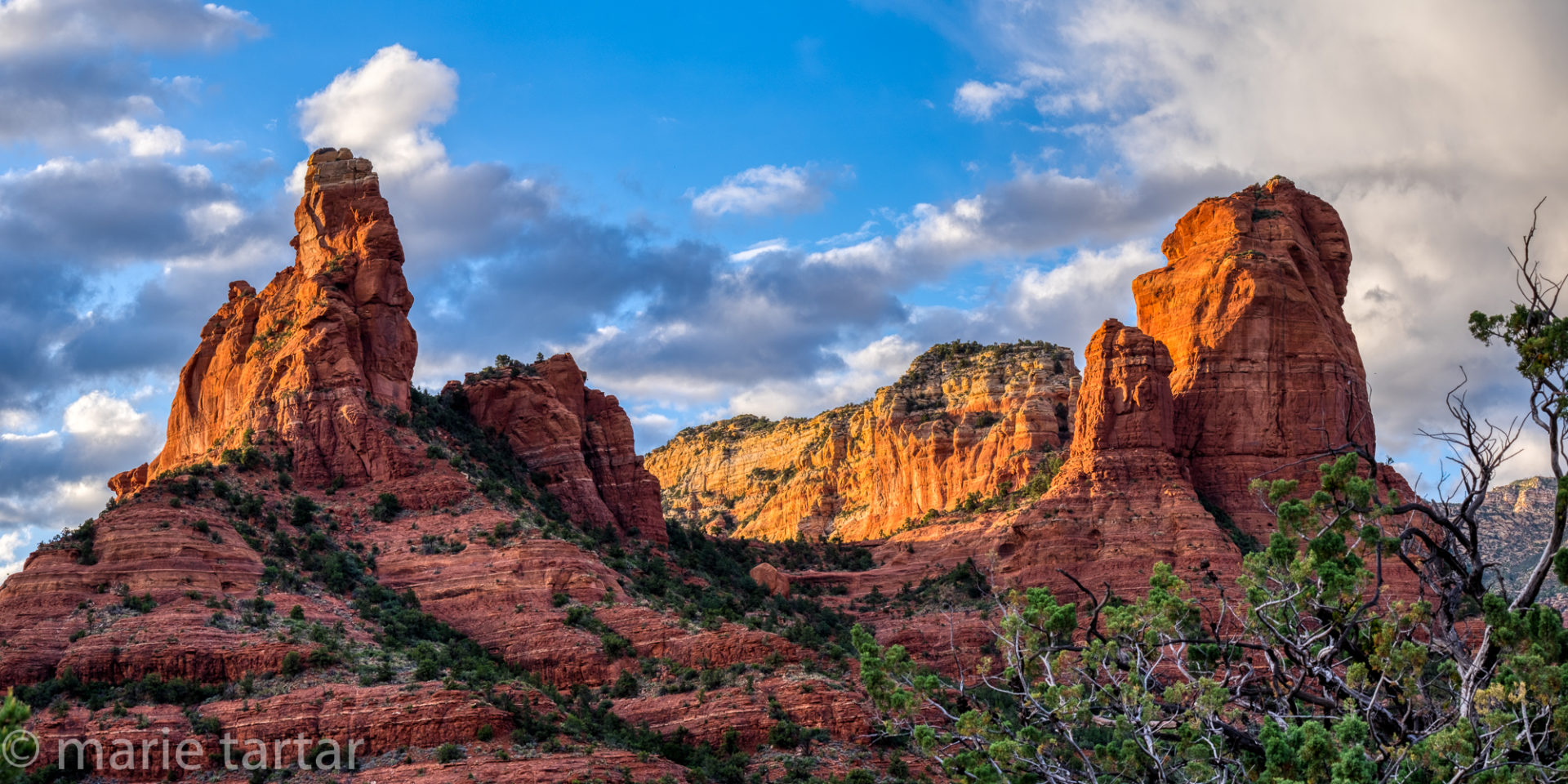
Saturday, February 22, 2020
For the past decade, the Sedona International Film Festival has occupied a permanent place on our yearly calendar at the end of February. I love Sedona in the winter. It is cold at night, but sunny and crisp during the day, perfect winter hiking temperature. Some winters, Sedona’s natural red rock beauty is enhanced with a dusting of snow, while in other years, there is no snow at all. We always buy Gold passes (discounts for members and for buying before the end of the prior calendar year!). This entitles us to see a film up to four times a day, but we usually go for a more manageable 2 or 3. Being a pass holder allows us to select films in early February and minimizes waiting in line for films.
Because of other travel, some years registering for the film festival is a bit of an adventure. This year was exceptionally difficult. We had a thready, meager hint of Internet access, occasionally. That we had any access from West Papua, Indonesia at a diving Eco-resort at all is something of a modern miracle. It worked just often enough to give one hope. I found the signal strongest after 10 pm, when it was dark and the resort quiet, all of the exhausted divers and staff dispersed to their bungalows and mostly asleep.
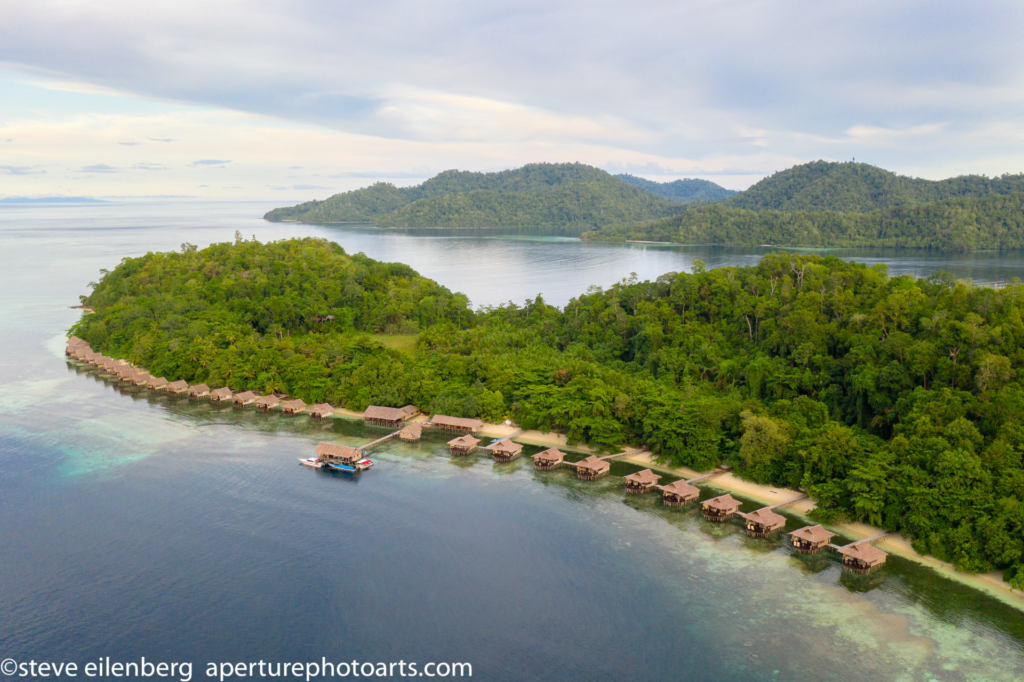
West Papua is quite remote. Papua Paradise’s Internet wasn’t its strongest feature-is that a good thing or a bad one?
For 3 nights in a row, I read descriptions of the films on offer as fast as I could before the Internet conked out, which it reliably did. There was no hope of actually viewing trailers of the films to help decide. Thankfully, the calendar function worked beautifully, enabling me to save my selections as I went along. Then I had to figure out when I would actually be able to confirm my selections-that is, when would it be Monday, February 3 at 10 am in Arizona, when registration would open? Thankfully, this coincided with our last morning at Papua Paradise and before we would be at sea for 11 nights on the Damai 2, where the Internet would also prove to be a phantasmic and very occasional presence.
Getting to the film festival always seems to be a little bit of an adventure as well. Last year, we bogged down in the snow within yards of our house, unable to proceed further. This year, there was no snow to slow us, only delayed flights and difficulty hooking up the jetway to the plane, causing us to pick up the car at midnight and pull into Sedona at 2 AM. We did manage to make our first film at 10 AM at the high school. The regulars were all there, our friends and neighbors from down the street in San Diego, John and Joan, who were joined later in the week by John’s sister and brother-in-law. Rebekah was manning the refreshment stand as a volunteer. Jim and Jeanette were already installed in their preferred seats.
Our first feature, Portrait of a Lady on Fire, a 2019 French film, was written and directed by Céline Sciamma. The film is lovely, each frame beautiful, with a Vermeer-like quality to the lighting. It was filmed in Brittany and is set in France in 1760, with Noémie Merlant playing Marianne, a portrait artist commissioned to paint a wedding portrait for an unwilling bride-to-be, Héloïse, portrayed by the luminous Adèle Haenel. The intended bride had already thwarted a prior painter by refusing to pose, so Marianne is instructed by the bride’s mother to pretend she is there as a companion, to accompany her daughter on seaside promenades. She is to paint her from memory in secret. This requires close observation, which runs as a theme through the film, as the women develop increasing interest in each other.
This film was interesting on many levels, as a period piece, as a portrait of an artist and the creative process, and as a window into the constraints on women’s roles and life expectations in earlier eras. Men barely appear in this film. The hierarchical organization of the household is subverted by the young women when the bride‘s mother is away for a few days and the two assume a more egalitarian intimacy with the housemaid, played by Luàna Bajrami, playing cards and reading. Their choice of reading material, the myth of Orpheus and Eurydice, had a personal resonance for all of us. In the past year, I had hooked Joan and John and Jim and Jeanette up with Joey to arrange house seats to see Hadestown in New York.
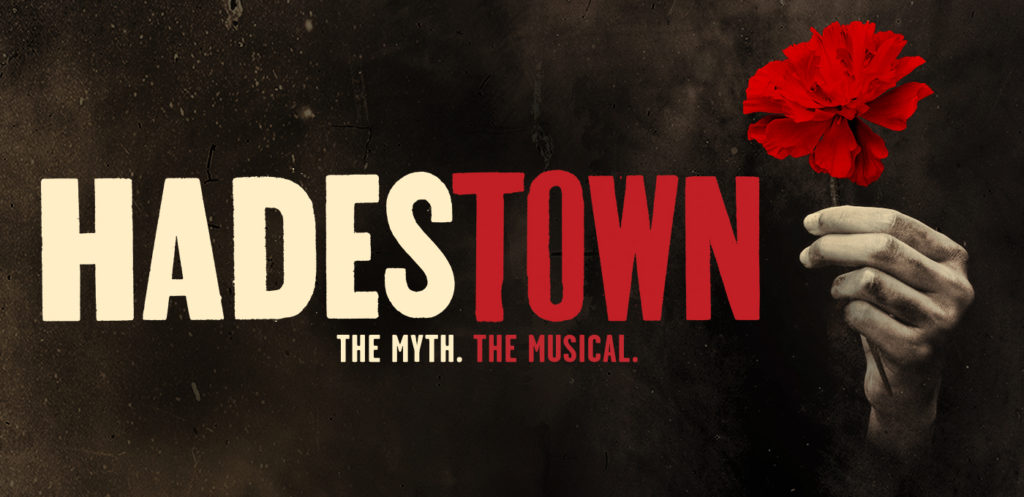
A timeless story, the myth of Orpheus and Euridyce, is told for a modern age in Hadestown and figures as an element in the excellent film Portrait of a Lady on Fire.
Our second film, Shepherd: The Story of a Jewish Dog also came in for near-universal praise. It is a World War II story, told through the lens of a beloved family pet, Kaleb, a German Shepherd. It was written, produced and directed by Lynn Roth, who was present for a question and answer session, along with her friend Lainie Kazan. When the Nuremberg laws were enacted, Jews were not allowed to keep pets and the dog is separated from his family and ultimately adopted by an SS officer, who trains him to guard Jews at a concentration camp. When Joshua, Kaleb’s original owner (played by the adorable August Maturo) arrives as a prisoner at the camp, they are reunited and Kaleb ultimately helps Joshua to escape.
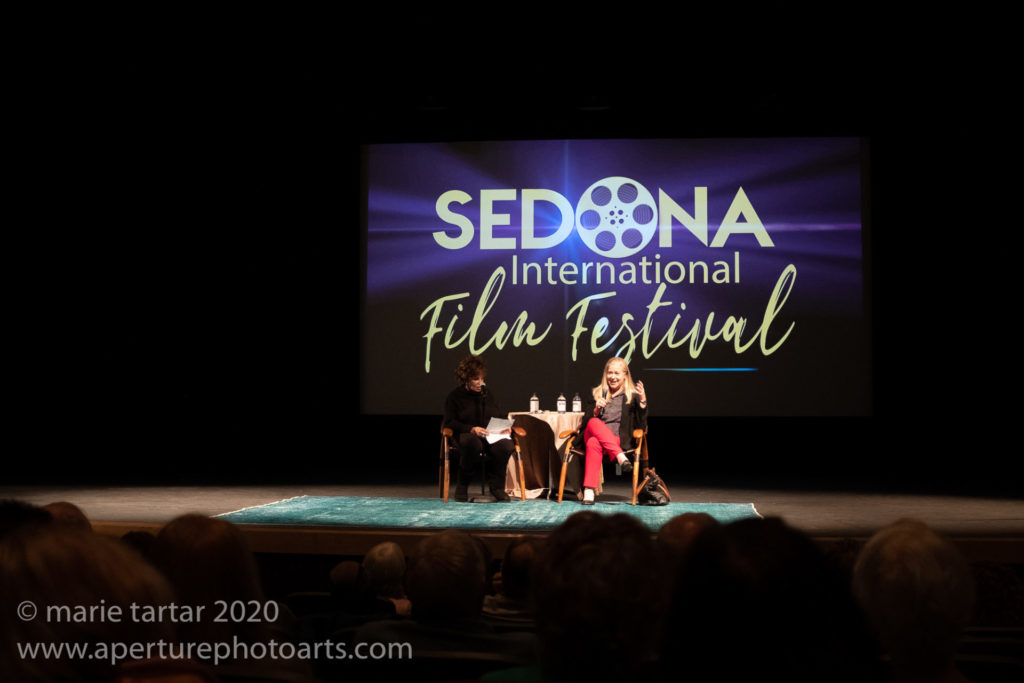
Lainie Kazan (left) and her friend Lynn Roth (right) discuss Lynn’s film Shepherd: The Story of a Jewish Dog after screening of the film in Sedona.
We bailed on the rest of our schedule, including The Etruscan Smile, which came in for considerable praise throughout the week. (Thanks to the Covid-19 crisis, we were able to see it at home in mid-April. The film festival’s home theater, Mary D. Fisher Theater, closed March 16, a mere 2 weeks after the festival. The streaming program, MDF@Home, started up in April, giving us a chance to see films we missed.)
Sunday, February 23, 2020
Rain was predicted the entire weekend. I didn’t bother to set the alarm, assuming light filtering in would wake us as usual in plenty of time. That didn’t happen. It was overcast and cloudy, and the sky gradually lightened, without much of a sunrise. To our surprise, it was 10 AM when we awoke, evidently much needed make up sleep. We missed our first scheduled film, a German escaping from east to west film called Balloon, which by all accounts later, was quite good. This was disappointing, as having previously visited Checkpoint Charlie in Berlin, which highlights the remarkable means by which East Germans fled to the west, we were looking forward to this film. (We also caught this one at home mid-April, thanks to MDF@Home streaming.) It was a taut escape thriller based on a true story, highly recommended!
After sharing a chopped salad and a cheddar braised beef sandwich lunch at Wildflower Bakery and inaugurating their new app, we were nutritionally set for the rest of the day. The second feature of the day, our first, was also a 2018 German film, a co-production with Britain, called The Keeper. Everyone loved this film, written and directed by Marcus H. Rosenmüller, with additional writing credit to Nicolas J Schofield. It is based on the true story of a German soldier named Bert Trautmann who becomes a British prisoner of war, played by the charismatic David Kross. His incredible talent as a soccer goalie is recognized while he’s in the camp and ultimately, he becomes a goalkeeper for Manchester, overcoming severe post World War II anti-German prejudice. The Keeper won the Audience Choice award for Best of Fest.

David Kross, the lead in The Keeper (second from left), also appears in The Silent Revolution, another excellent German film which we saw later in the week. He plays a high school student whose class stages a minute of silence in solidarity with a Polish resistance movement, inviting unwanted governmental scrutiny.
The 2019 Canadian film, Coda, was preceded by an appealing short film with a local connection. Thin Walls was written, directed, produced and starred Nick Canellakis, who also is the artistic director of the Sedona Chamber Music Society. He is a cellist, not to be confused with a cello player, whose practicing all day long irks his new neighbor, an aspiring writer, played by Ella Rae Peck.
Coda was a lovely, elegaic film, starring Patrick Stewart as a world famous concert pianist in the twilight of his career who is returning to the stage after a long absence. Katie Holmes co-stars as a New Yorker writer who wants to interview him and ultimately helps him to overcome some of his demons. The film was lovely, albeit leisurely paced and arguably a touch too long. Giancarlo Esposito played a very different character from his role as Gus Frink in Breaking Bad, playing the pianist’s agent.
Steve bailed on the evening film, taking an Uber home. He missed an excellent 2019 film called Seberg, from the United Kingdom. This film is based on the life of French new wave movie star, best known for Breathless, Jean Seberg, played by the incandescent Kristen Stewart. Her support of the civil rights movement made her a target of the FBI in the late 1960s, unraveling her life and career. In an interesting connection to a film I liked in last year‘s festival, her French husband, played by Yvan Attal, was the writer Romain Gary, whose life was depicted in the film The Promise of Dawn (La Promesse de l’Aube). Another personal connection: Seberg’s first 2 films were directed by Otto Preminger, Saint Joan and Bonjour Tristesse. In our Sedona media room, we have vintage Saul Bass designed posters of both of these films, neither of which we have been able to locate to see. Both were acquired at one of the first Sedona Film Festivals we attended, back when a vintage poster dealer came for the week.


Getting home was an adventure. Steve had left me the keys to the Honda Element, which we drive when we are in Arizona. Steve drives it more often than I do. Opening the car in the dark parking lot required fishing out my phone and its flashlight to sort out which button to use to open it. Not realizing I should only use the key set and not the buttons on the car door, I managed to set off the honking horn alarm. As I left the parking lot of the high school, I began to suspect that the lights did not go on automatically in this vehicle, unlike the car I usually drive at home. I pulled off on the side of the street in front of a hotel, and just then, police lights flashed behind me, so I pulled into the hotel. Indeed, I was being pulled over for not having car lights on. After checking my license and explaining the situation, I was free to head home. However, pulling into the driveway and getting out of the car was another adventure. Our street is very dark and we are at the end of the street. Somehow, as I tried to exit the car, it began to honk loudly and flash its lights like it was being burglarized. This happened twice. I even tried to call Steve from the car, but he was deep into an episode from the new season of Better Call Saul and didn’t respond. I later learned that I was only supposed to be using the clicker and not the door to enter and exit the car.
Monday, February 24, 2020
We started our day’s viewing with an intense Ken Loach-directed and Paul Laverty-written film Sorry We Missed You. The working class parents of two teenage children are on the edge of financial ruin, despite their best efforts, in this painfully realistic drama.
Ella Fitzgerald: Just One of Those Things was an enjoyable bio-documentary of the vocal giant whose career spanned decades.
In Safe Hands, a 2018 French-Belgium drama written and directed by Jeanne Herry, is set in the French social services and child welfare milieu, as the fate of a baby given up for adoption is decided by an impressive army of interested parties.
Tuesday, February 25, 2020
We met John and Joan at 8:30 am at the Mezcal trailhead for the 4.2 mile round trip hike to Devils Bridge. We had lunch afterwards at Layla’s Bakery Café, our first time trying this newer venue (assessment: good, not great).
We managed to make it home, shower, and do a quick enough turnaround to make our 1 PM movie.
This was a second version of Fiela’s Child, based on a South African novel, telling the story of a family rent apart by racial prejudice and the mores of the time. This 2019 film was written, directed and produced by Brett Michael Innes. Fiela (Zenobia Kloppers) is the matriarch of a black family in a parched and remote region of South Africa in 1880. Their lives are changed forever one night when Fiela hears a baby crying outside and rescues a white child, whom she names Benjamin and raises with her own children. Nine years later, the census taker comes and insists on taking Benjamin to the capital to see if perhaps he is a child who was lost in the forest nine years before. A forest dwelling family of wood cutters claims he is theirs. Unfortunately, Benjamin is much worse off living with this white family, headed by a cruel and authoritarian father, than he was with the loving family headed by Fiela.
Our second feature had multiple interesting San Diego tie-ins. The Samuel Project was filmed in San Diego and released in 2018, and stars Hal Linden as a grandfather (Samuel) who is reluctantly engaged to help his aspiring artist grandson Eli ( Ryan Ochoa) with a project for his multimedia class. Eli decides to tell the story of his grandfather’s life, which proves to be fascinating. Neither Samuel‘s son nor grandson know that Samuel is a Holocaust survivor. Besides the San Diego locales used for filming, our friends Miles and Tatiana make brief appearances toward the end of the movie. They are friends with Hal Linden and initially were drafted to be extras in a scene involving an audience, but at the last minute, Miles was given a few speaking lines. This was a really touching, well done feature film, which we both thoroughly enjoyed, as did the audience. Festival director Patrick mentioned in the introduction that it had been a popular choice during the Sedona Jewish Film Festival and had returned to this festival by popular demand.
Wednesday, February 26, 2020
We took this windy morning off. Most of mine was devoted to a long call discussing Clarissa‘s observations of Mama during their extended time together in Singapore while we were in Indonesia.
Today was documentary day, beginning with our screening at 1 PM at Mary Fisher Theatre of Eating Up Easter, a 2018 documentary looking at the environmental pressures on Easter Island, as the island struggles with oceanic plastic, increased tourism and waste generation. The film was by a native son named Sergio M Rapu, whose father is leading the push for progress, building the first mall on the island. The filmmaker, whose wife Elena Kouneski Rapu is the screenwriter and producer, framed the film as a message to his newborn son. Of course, the pressures facing Easter Islanders are not confined to Rapa Nui but are common to many communities. it was an interesting look for us at how the island has changed in the 16 years since we visited it in 2003.
Two representatives of Oceans Plastic, an environmental organization which helped to underwrite the film, were present for a question and answer session afterwards.
See this film!
The best film of the day and one of the best films of the week was an extraordinary 2019 documentary from Macedonia called Honeyland, directed by Tamara Kotevska and Ljubomir Stefanov. Not only was it nominated for an Academy award in the category of Best Documentary Feature, it was also nominated in the Best International Feature Film category, a first. It depicts the life of a traditional beekeeper, Hatidže Muratova, who lives in a remote isolated village with her partially blind and bedridden elderly mother. Her life is forever changed when a large family moves into the village and decides to pursue beekeeping as well. The filming took place over 3 years. It is a beautiful depiction of a traditional way of life and of a mother and daughter relationship, as well as a cautionary tale of exploitation of natural resources.
Steve skipped out on our last scheduled film, called Sanctuary, featuring Javier Bardem as the celebrity face of a Greenpeace campaign to declare a portion of the Weddell Sea a marine sanctuary. A film about Antarctica with Javier Bardem, a fellow penguin lover? Yes, I was there.
Thursday, February 27, 2020
We spent the early afternoon exploring the criminal justice system via Foster Boy, starring Matthew Modine as a high-powered corporate lawyer forced to defend an incarcerated black youth who accuses a for-profit foster care corporation of having knowingly placed a known sex offender in the same foster home with him.
We followed up with a light but enjoyable French film about the parallel lives of two young people in Paris who live in the same neighborhood and just might be right for each other. Someone, Somewhere is directed by Cédric Klapisch, who also co-wrote and co-produced this film. We’ve seen other films by Klapisch at this festival in past years, including 2011’s My Piece of the Pie and 2017’s Back to Burgundy.
In the evening, we had some comic relief with 2019’s Standing Up, Falling Down, starring Billy Crystal as a Long Island dermatologist with issues, who befriends a younger, aspiring comedian (Ben Schwartz), who finds himself in his 30s having to move back in with his parents after flubbing making it as a comedian on the West Coast.
Friday, February 28, 2020
We slept late enough that we had to scramble to make it to our 10 AM film, but we did manage and it was well worth the scramble. Driveways is a 2019 film directed by Andrew Ahn, starring Hong Chau as Kathy, a single mother who arrives at her late sister’s house after her death to clean it out. Her adorable, quiet eight-year-old son Cody is in tow ( Lucas Jaye). Kathy’s late sister was a hoarder and she has a formidable task in front of her. Across the driveway is a Korean war veteran and widower named Del, ably played by Brian Dennehy, in a very affecting late role (he died on April 15, 2020, while I was polishing this write up).
Driveways was preceded by a very enjoyable short film called when you know you know: a brief and thorough investigation into mysterious sources of glitter. Gregory Kasunich, 1/2 of the director and producer team, was present. A contentious argument with his longtime girlfriend Anna erupts when Dan comes home late with glitter on his face. They are overdue to attend their friends’ engagement party.
A few days before, Steve had found a gorgeous vintage rosewood dresser at the local consignment store. We discovered a kindred spirit mid-century enthusiast in Laura at the store. I ran into another mid-century design fanatic friend, Gary, on the way to see an Israeli film, Incitement, which Steve skipped in favor of picking up the dresser.
This 2019 feature dramatizes the murder of Isreali Prime Minister Yitzhak Rabin in 1995 by a radicalized Orthodox Yemenite law student named Yigal Amir, compellingly played by handsome Yehuda Nahari Halevi. The story is told from the point of view of the assassin as events over the preceding year lead to his gunning down the Prime Minister at a peace rally. The Oslo Peace Accord had been signed in 1993 after being negotiated by Rabin and PLO leader Yasser Arafat in secret in Oslo, events dramatized in the play Oslo, which I saw in New York in 2017. The director had unprecedented telephone access to Amir, who is in prison for life. He is depicted as actively seeking justification for his action from extremist rabbis on the grounds that Jewish law mandated that Rabin’s actions (in negotiating with the PLO) be punished.
We finish the day with a gripping film that Joan and John raved about earlier in the week, a German film called The Silent Revolution about the repercussions a graduating East German high school class faces when they stage a moment of silence in solidarity with an uprising in Hungary.
Saturday, February 29, 2020
We hiked the Jim Thompson Trail in the morning instead of attending a documentary about fledgling rangers protecting an endangered rhinoceros in Kenya called Kifaru.
For lunch, we tried out a new spot, The Angel Kitchen and Japanese Market, followed by viewing a 2019 French film called An Impossible Love, directed by Catherine Corsini, who cowrote with Laurette Polmanss and Christine Anjot, who wrote the novel on which the film is based. Rachel ( Virginie Efira) is a beautiful young woman living in a provincial town and working as an office clerk who is captivated by Philippe (Niels Schneider) a multilingual, handsome, dashing well educated son of a wealthy family from Paris. Their relationship results in a daughter (Jehnny Beth) who narrates the events of the subsequent years as her father comes in and out of her and her mother’s lives.
Thinking our following film was also at the high school performing arts center, we took a walk afterwards, resulting in missing a documentary on the Apollo theater that actually turned out to be at Mary Fisher theater. So we took the slot off and headed home, but returned for our final feature, Sea of Shadows, a deeply disturbing documentary chronicling the race to save the rare vaquita, a dolphin on the verge of extinction in the Sea of Cortez. The vaquita is endangered by net fishing, with the actual target being a large fish called the totoaba, which is desired for its swim bladder, which is harvested for an insatiable Chinese market, despite having no proven medicinal value.
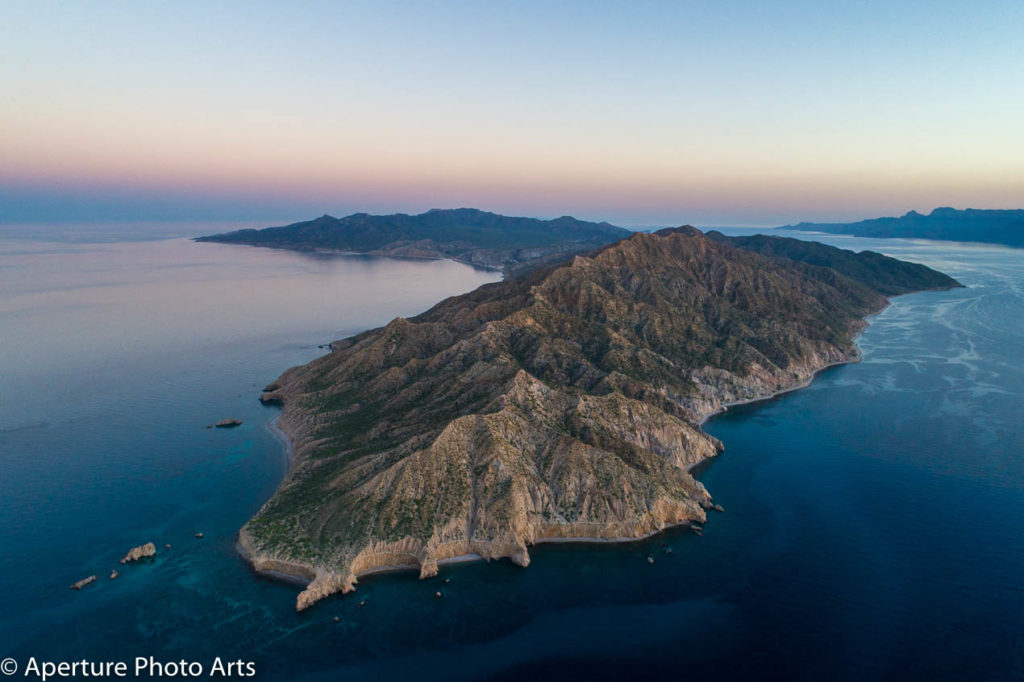
Beautiful Baja and the Sea of Cortez is the locus for the real-life drama and high-stakes conflict so well depicted in Sea of Shadows.
Sunday, March 1, 2020
We had a minor Sedona moment at breakfast. Steve had been wishing we had 3 eggs with which to cook up all the leftovers. There were but two, but one had a double yolk, a mini-Sedona moment he called me into the kitchen to witness. We had a film scheduled at 10 am but the bustle of closing the house up and driving to Phoenix was enough to occupy us. Of 36 possible screenings during the 9-day festival, I made 21 and Steve’s tally was 18 for the week.
As I look back and write this from the vantage point of mid-April, that was a week of innocence, of blithely coming and going as we pleased, with not a thought as to who else (and more importantly, how many else) there might be. The world as we knew it was upended progressively as March unfurled, each passing day bringing more and more horrific news of the looming and then rampaging corona virus crisis. The home theater of the film festival, the Mary D. Fisher Theater, would close on March 16 and state after state would implement Stay at Home orders, beginning with California on March 19. We had planned to be in New York for a week at the end of March, but would find ourselves only 4 weeks after the festival driving back to Sedona for an alternative Shelter in Place week.
It was a transformed Sedona we encountered. Sedona had already implemented social distancing guidelines even before the state of Arizona enacted them during our stay, on March 31. But that’s a tale for another post. In the meantime, being at home means more movie watching time, so check out MDF@Home and look for some of the fabulous films screened at SIFF.
More film ideas can be found in my write-ups of prior year’s SIFFs here:

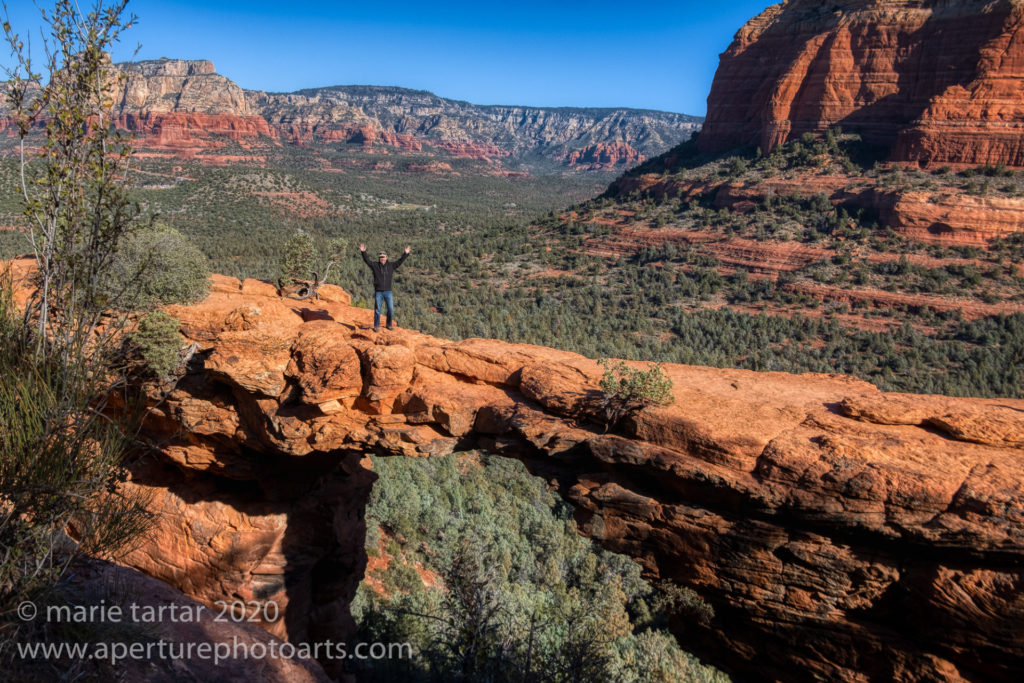
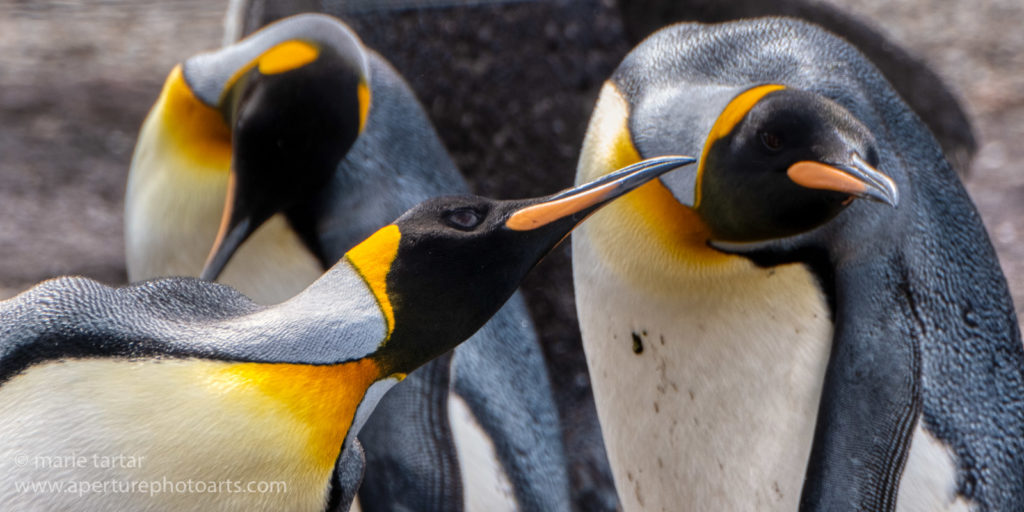
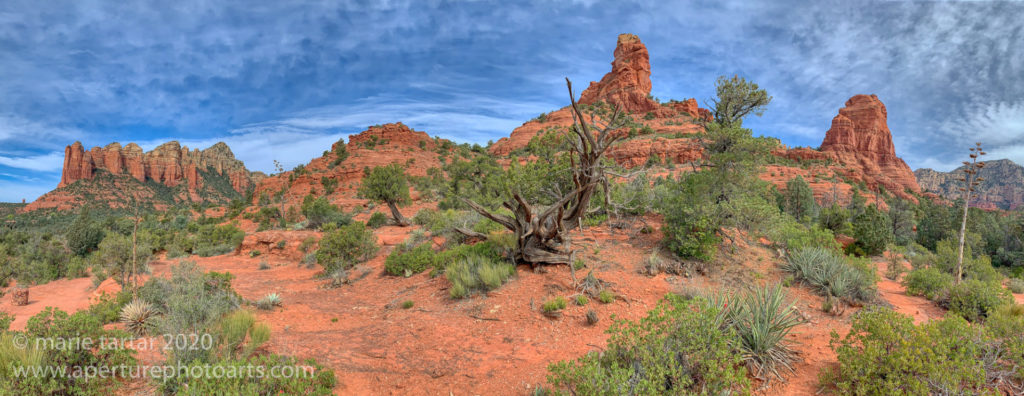
Lovely descriptions of the films and your Sedona visit from the 2020 Film Festival, Marie. I was able to see a few movies amidst the volunteering this year and I too loved The Samuel Project and Portrait of a Lady on Fire. Really laughed at Billy Crystal’s Standing Up, Falling Down – always a treat among the normally serious and sober selections. Sure hope that the world recovers and we have another Festival to look forward to in 2021.
Me too! The economic reverberations from these crisis know no boundaries.
-Marie